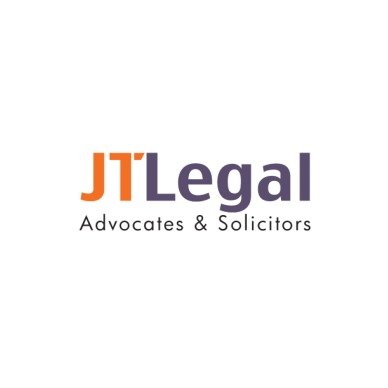Best Cyber Law, Data Privacy and Data Protection Lawyers in Marina
Share your needs with us, get contacted by law firms.
Free. Takes 2 min.
List of the best lawyers in Marina, Singapore
Singapore Cyber Law, Data Privacy and Data Protection Legal Articles
Browse our 1 legal article about Cyber Law, Data Privacy and Data Protection in Singapore written by expert lawyers.
- Personal Data Protection Act (PDPA): Introduction to PDPA
- In recent years, the Personal Data Protection Act 2012 (“PDPA”) of Singapore has been a trending topic for discussion, especially due to the trend of storing valuable personal data online. The PDPA is crucial as it protects the personal data for individuals while recognising the need for organisations to “collect,... Read more →
About Cyber Law, Data Privacy, and Data Protection Law in Marina, Singapore
Marina, and Singapore as a whole, have progressive and astute cyber law, data privacy, and data protection policies. The Personal Data Protection Act (PDPA) 2012 provides a comprehensive and stringent framework for the management and protection of personal data in Singapore. This act also restricts cross-border data flows unless the recipient meets specific privacy standards. Additionally, the Computer Misuse Act (CMA) focuses on illegal activities online, such as hacking, unauthorized access, or disruption of services.
Why You May Need a Lawyer
Every business that collects, uses, or discloses personal data in Singapore must adhere to the PDPA. It is, therefore, common for businesses to seek legal guidance on matters related to data privacy regulations and compliance. Individuals may also require legal assistance if their online rights are violated, such as unauthorized use of personal data, cyber fraud, or identity theft. Moreover, anyone accused of offenses under the CMA, like unauthorised access or cybercrimes, would also require expert legal advice.
Local Laws Overview
The PDPA governs data privacy, establishing rules for the collection, use, and disclosure of personal data. It empowers individuals with legal rights regarding their personal data, such as the right to access or correct their data. Simultaneously, the CMA deals with cybersecurity, criminalizing unauthorized modification, access to computer material, and the perpetration of cybercrimes. Violation of these laws results in strong penalties - fines, imprisonment, or both. Therefore, it is crucial to have an awareness and understanding of these laws.
Frequently Asked Questions
1. What constitutes personal data under the PDPA?
Personal data refers to any information, whether true or not, about an individual who can be identified from that information or from that information combined with other information to which the business has access.
2. What are the obligations for businesses under PDPA?
The PDPA has nine primary obligations: Consent, Purpose Limitation, Notification, Access and Correction, Accuracy, Protection, Retention Limitation, Transfer Limitation, and Openness Obligation.
3. What are the penalties for violating Singapore's cyber laws?
Penalties range from fines up to SGD 1 million, imprisonment, or both, depending on the seriousness of the offence committed under the PDPA and the CMA.
4. Can a business transfer data out of Singapore?
Yes, but proper measures must be in place to ensure that the recipient organization offers a standard of data protection equivalent to the PDPA.
5. What are the provisions for reporting a data breach under PDPA?
Data breaches likely to cause significant harm to affected individuals must be notified to the Personal Data Protection Commission and the affected individuals within 72 hours of discovering the breach.
Additional Resources
The Personal Data Protection Commission (PDPC) provides comprehensive resources, including guidelines and advisory services for understanding and complying with Singapore’s personal data protection laws. Info-communications Media Development Authority (IMDA) offers guidance on all things related to digital media and information communication.
Next Steps
If you need legal assistance related to Cyber Law, Data Privacy, or Data Protection, you should consult with a practicing lawyer from an established law firm who specializes in these fields. Preparation of all relevant documents, understanding the specific law, and your rights under these provisions are pivotal in obtaining a positive outcome. Legal professionals can guide you through every step and ensure compliance with these laws, thus safeguarding your interests.
Lawzana helps you find the best lawyers and law firms in Marina through a curated and pre-screened list of qualified legal professionals. Our platform offers rankings and detailed profiles of attorneys and law firms, allowing you to compare based on practice areas, including Cyber Law, Data Privacy and Data Protection, experience, and client feedback.
Each profile includes a description of the firm's areas of practice, client reviews, team members and partners, year of establishment, spoken languages, office locations, contact information, social media presence, and any published articles or resources. Most firms on our platform speak English and are experienced in both local and international legal matters.
Get a quote from top-rated law firms in Marina, Singapore — quickly, securely, and without unnecessary hassle.
Disclaimer:
The information provided on this page is for general informational purposes only and does not constitute legal advice. While we strive to ensure the accuracy and relevance of the content, legal information may change over time, and interpretations of the law can vary. You should always consult with a qualified legal professional for advice specific to your situation.
We disclaim all liability for actions taken or not taken based on the content of this page. If you believe any information is incorrect or outdated, please contact us, and we will review and update it where appropriate.








